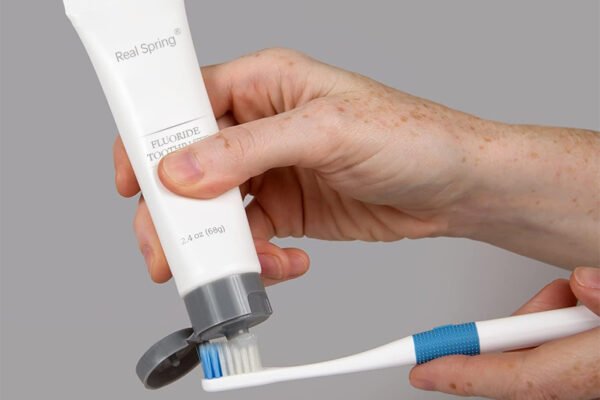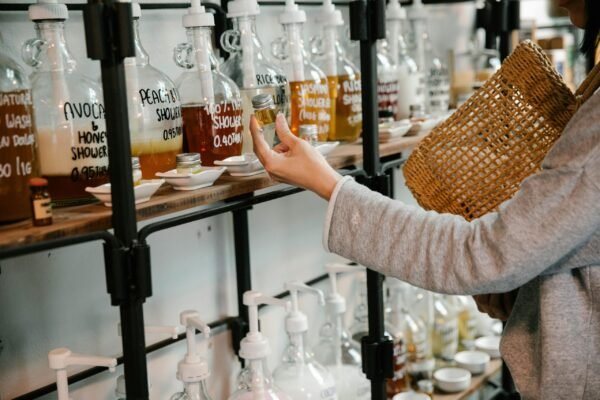Let’s be real—who hasn’t winced at the thought of eating a slice of pizza or sipping hot tea when a canker sore is burning on their cheek? Canker sores are tiny, but they pack a huge punch of pain, and the last thing you want is a mouthwash that makes that pain worse. But here’s the thing: not all mouthwash is enemy number one when you have canker sores. The right one can soothe irritation, kill bacteria that slow healing, and even speed up recovery. As a professional oral care supplier with years of crafting gentle, effective formulas, we’ve helped countless brands create mouthwash lines that work for sensitive mouths. In this guide, we’ll break down what to look for in a mouthwash for canker sores, plus share expert-approved options that actually ease pain—not make it worse.
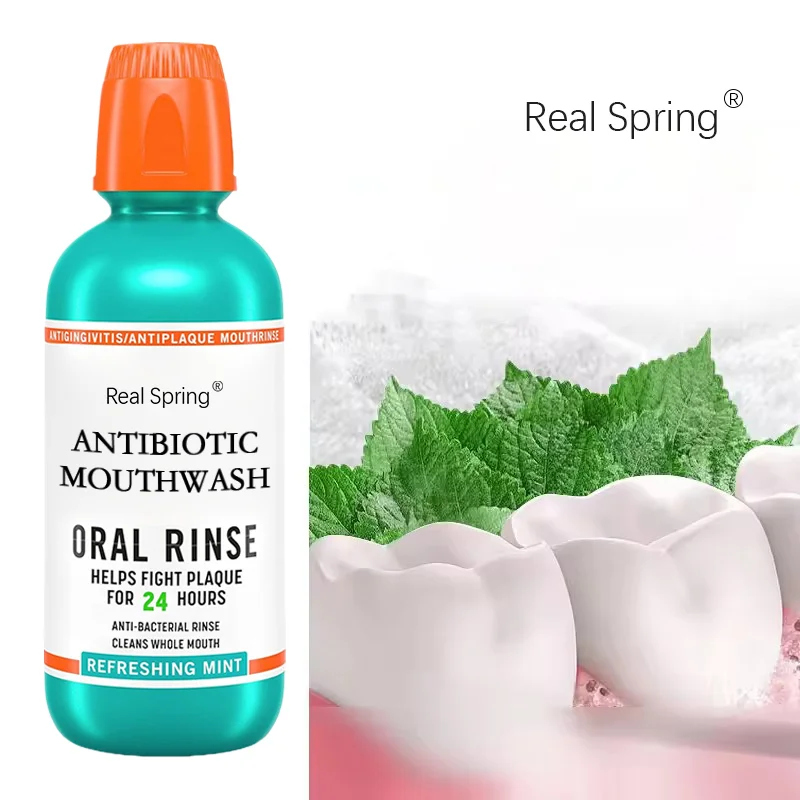
I. First Rule: What to Avoid in Mouthwash When You Have Canker Sores
Before we talk about the good stuff, let’s get rid of the bad. Some mouthwash ingredients are like pouring salt on a wound when you have a canker sore—they’ll leave you wincing and regretting your choice. A trusted mouthwash manufacturer will never include these in formulas made for sensitive or sore mouths, and you shouldn’t either.
1. Alcohol
First up: alcohol. You know that tingly feeling some mouthwashes give? That’s alcohol, and it’s terrible for canker sores. Alcohol dries out your mouth’s delicate mucous membranes and irritates open wounds, turning a mild ache into a sharp pain. It also kills the good bacteria in your mouth, which slows down how fast your canker sore heals. The worst part? Many generic mouthwashes rely on alcohol to “feel effective”—but for anyone with a canker sore, that “feel” is just pain. We always skip alcohol in our sensitive-mouth mouthwash blends, and you should too.
2. Sodium Lauryl Sulfate
Next: sodium lauryl sulfate (SLS). It’s the ingredient that makes mouthwash foam, but it’s also a common irritant. SLS can strip away the thin protective layer on your mouth’s lining, making canker sores more exposed and painful. Think of it like using a harsh soap on a sunburn—you’re only making the problem worse. Even if a mouthwash says “gentle,” check the label for SLS. If it’s there, put it back on the shelf.
3. Artificial Fragrances
Finally: strong artificial fragrances or dyes. That “fresh mint” scent might sound nice, but synthetic fragrances can trigger irritation, especially around open sores. Dyes, too, offer no benefit and can sometimes stain the sore or make it more sensitive. A quality mouthwash for canker sores will use natural flavors like mild peppermint or chamomile and skip unnecessary additives—something we prioritize when working with brands on private label mouthwash lines.
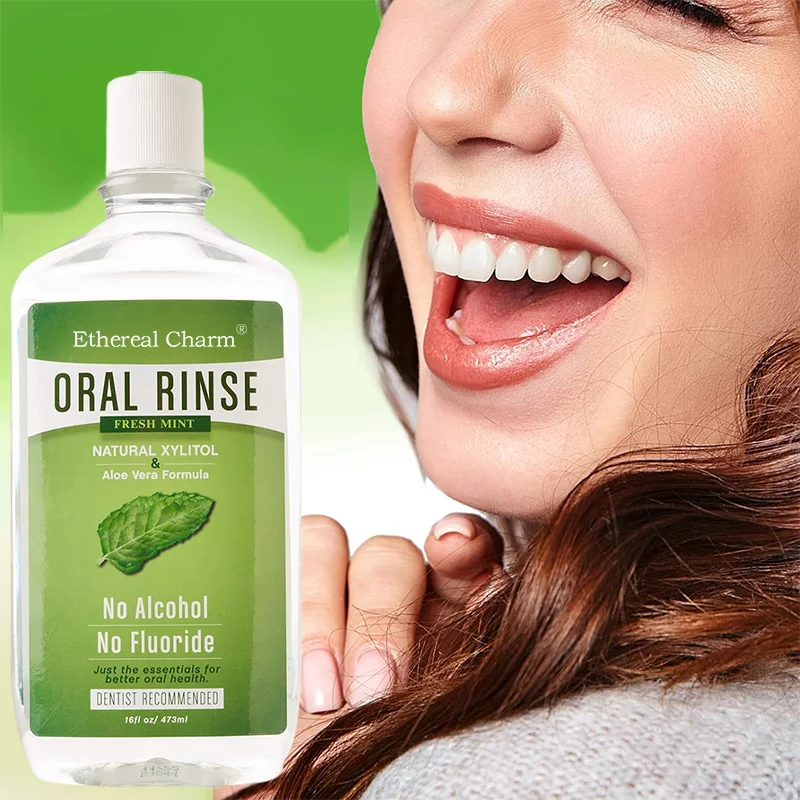
II. The Best Mouthwash Types for Canker Sores: Expert Picks
Now that you know what to avoid, let’s dive into the mouthwash options that actually help canker sores. These aren’t just random picks—they’re formulas we recommend as a professional mouthwash supplier, backed by what dentists and oral care experts suggest for pain relief and faster healing.
1. Gentle Antiseptic Mouthwash to Fight Infection
Canker sores are open wounds, so keeping them free of bacteria is key to preventing infection and speeding up healing. But you need an antiseptic that’s tough on bacteria, not on your sore. Chlorhexidine gluconate mouthwash is a top pick here—it’s a mild antiseptic that kills harmful bacteria without burning, making it great for moderate to severe canker sores. We often suggest this to brands creating OEM/ODM oral care products for people with frequent mouth sores, as it balances effectiveness and gentleness.
For more targeted cases, antibiotic mouthwash might be an option—but always use this under a dentist’s guidance. It’s stronger than over-the-counter antiseptics, so it’s not for every sore. Antiseptic mouthwash, a broader category, is also a safe bet, as long as it’s alcohol-free and SLS-free—look for ones with natural antiseptics like tea tree oil or eucalyptus to avoid irritation.
2. Natural Soothing Mouthwash to Ease Pain
If you prefer natural ingredients, these mouthwash options are perfect. Xylitol mouthwash is a fan favorite—xylitol is a natural sweetener that not only tastes mild but also stops bacteria from sticking to your teeth and sore. We love including xylitol in our natural mouthwash blends because it’s gentle enough for daily use, even when you have multiple canker sores.
Baking soda mouthwash is a simple, affordable option you can even make at home, but for a more consistent formula, look for store-bought versions. Baking soda balances your mouth’s pH, which reduces irritation and stops bacteria from thriving—plus, it’s so gentle you can use it multiple times a day without discomfort.
3. Protective & Healing-Focused Mouthwash to Speed Recovery
Some mouthwashes don’t just soothe pain—they actively help your canker sore heal. Fluoride mouthwash is a must here, even if you have a sore. Why? Because canker sores make you less likely to brush well, so fluoride protects your teeth from cavities while your mouth heals. We always recommend alcohol-free Fluoride mouthwash to users with canker sores—it’s a two-for-one: teeth protection and no extra pain.
For canker sores caused by fungal infections, nystatin mouthwash is the go-to. It’s an antifungal that targets the root cause of the sore, and while it’s usually prescription-only, some over-the-counter versions are available for mild cases. As a supplier, we remind brands that this is a niche but important product—there’s a real need for mouthwashes that address fungal-related sores.
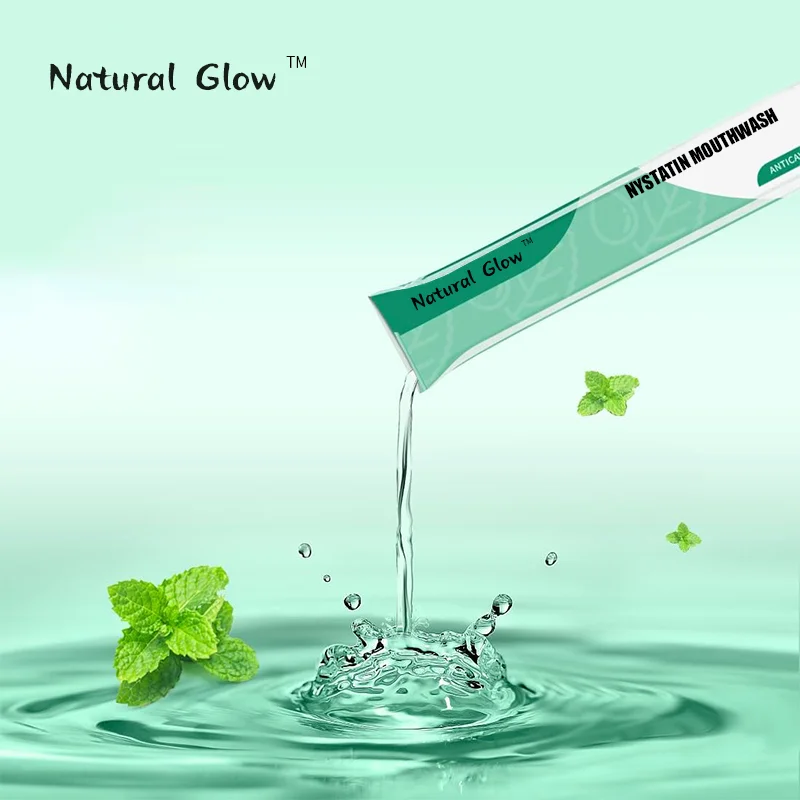
III. How to Use Mouthwash Correctly for Canker Sore Relief
Even the best mouthwash won’t help if you use it wrong. Here’s how to get the most relief and healing when you have a canker sore.
First, use the right amount—usually 15 to 20 milliliters about a tablespoon. Swish it gently around your mouth for 30 to 60 seconds, but don’t gargle hard—you don’t want to rub the mouthwash roughly agains t your sore. Spit it out, and don’t rinse your mouth with water right after—this washes away the active ingredients that help heal. Also, avoid eating or drinking for 30 minutes after using mouthwash, so the ingredients have time to work.
We also suggest using mouthwash at the right times: after meals and before bed. And don’t overdo it—once or twice a day is enough. Using mouthwash too often can disrupt your mouth’s natural bacteria balance, which might slow healing.
Conclusion
Dealing with canker sores is never fun, but the right mouthwash can turn a painful week into a mild inconvenience. Remember: skip alcohol, SLS, and harsh additives; choose gentle antiseptics, natural soothers, or healing-focused formulas; and use it correctly. As a professional mouthwash manufacturer, we’re here to help—whether you’re a consumer looking for the best option, or a brand wanting to create a canker sore-friendly mouthwash line through our OEM/ODM or private label services.
The key takeaway? Mouthwash doesn’t have to be your enemy when you have a canker sore. With the right pick, it can be your best friend—soothing pain, fighting infection, and helping you get back to enjoying your favorite foods fast.



